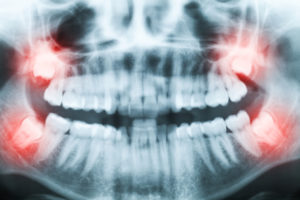
Wisdom teeth are experienced by majority of people in their lifetime. Whether you have wisdom teeth or you don’t, it is something consistently watched by any dentist you will see. At a certain age, in the late teens, wisdom teeth begin causing issues, which is why they tend to be extracted. Wisdom teeth are also known collectively as the third molar, and may exist in singularly, in pairs, triples, quadruples, and for the unlucky, more than 5 can exist!
As many people understand, wisdom teeth usually result in extraction. Not having these teeth extracted is rare, as they may cause issues, allowing your teeth to shift or grow in the wrong direction. When you decide to go through the extraction process, you will most likely be recommended to an oral surgeon, and undergo IV sedation. Sedation is optional, but extremely recommended. Post extraction care is critical and you should follow your doctor’s instructions for a flawless healing.
Per most advice given by dentists, it would be counterproductive to wash your mouth post-extraction since coagulation of blood takes place thereby sealing off the wound. However, rinsing with warm water is known to dislodge the blood clots thereby extending the process of bleeding. True enough, a wisdom tooth is a problem that can be serious especially given the complications that can arise.
If you experience a dry socket post extraction, your dentist can pack the area, acting as a mock blood clot, to keep debris and unwanted matter out of the site that is healing. Another issue that may arise post extraction is swelling. It is common for your face to swell, because of the impact of the surgery, but your doctor will know how to calm the healing in time.
If in the location where your wisdom teeth exist begins causing serious pain, it is important to see your dentist for it to be checked. If you notice the teeth growing in and it is more than discomfort you may be dealing with the aforementioned issues, such as overcrowding or impacted teeth. Schedule an appointment for an extraction if your dentist agrees they may cause an issue, and ensure you listen to post-op instructions to allow the healing to go as smoothly as possible.
